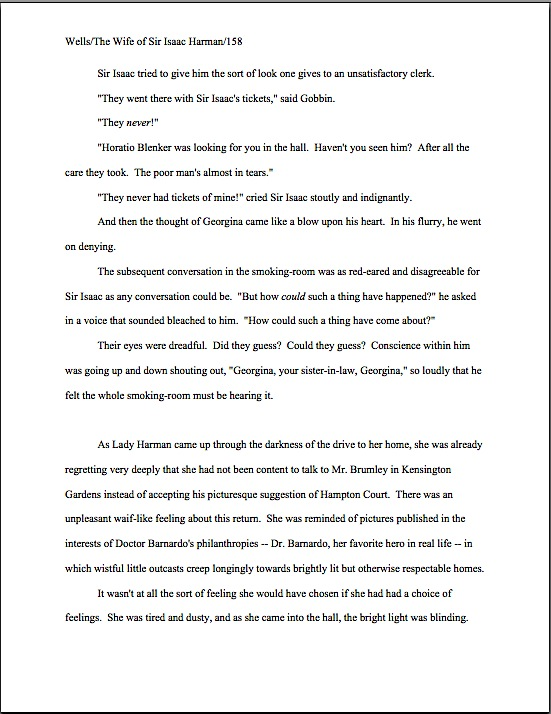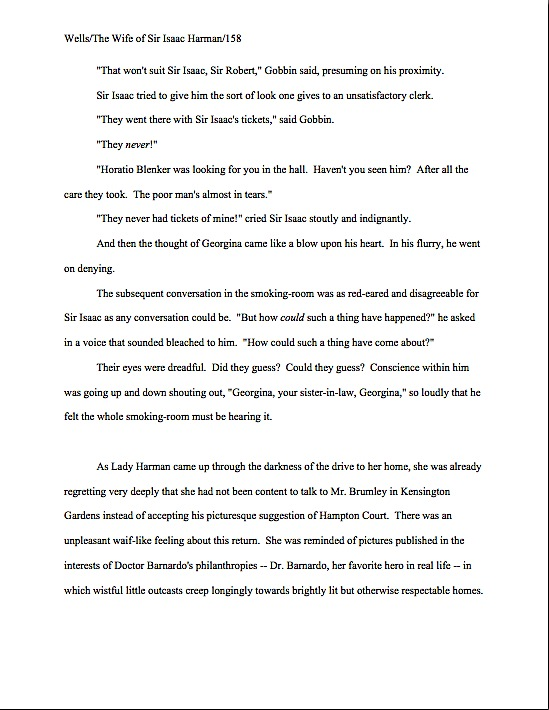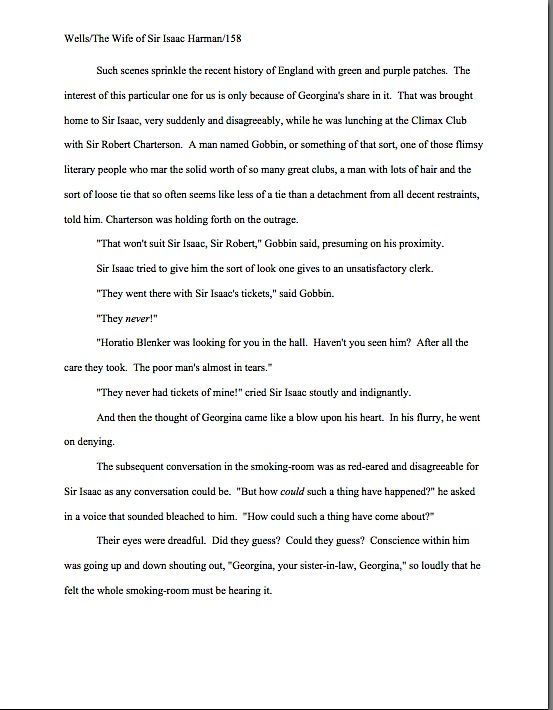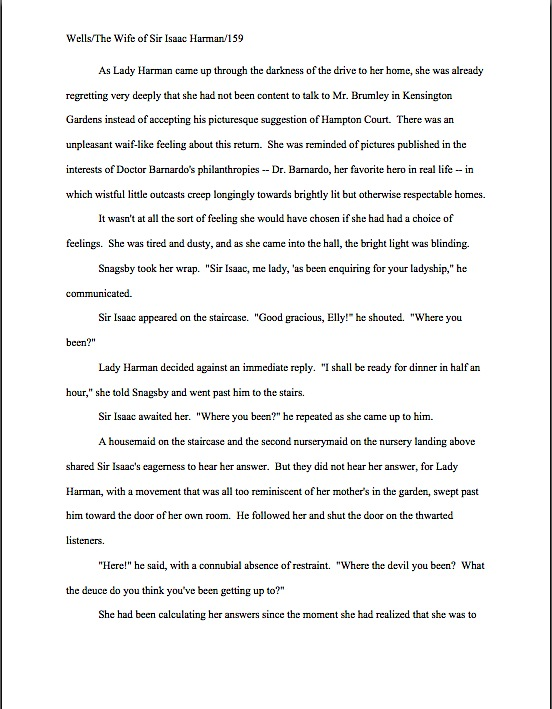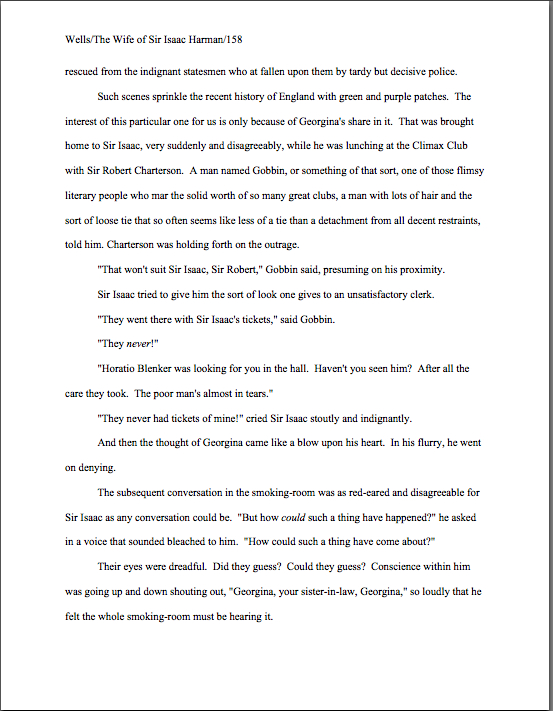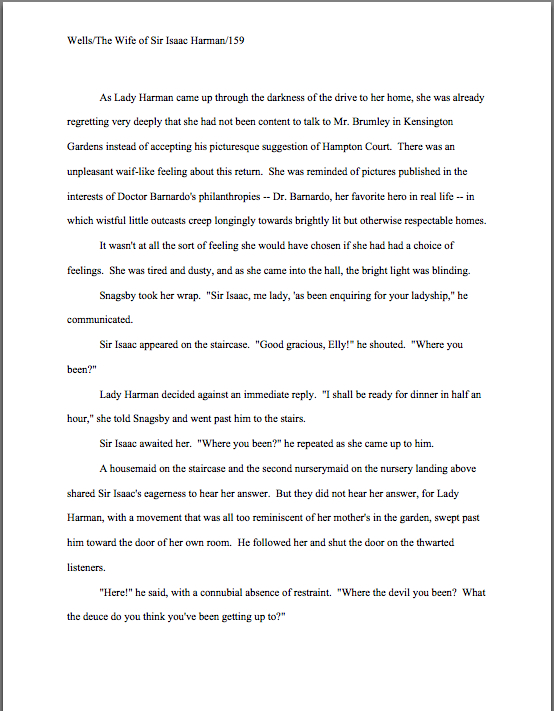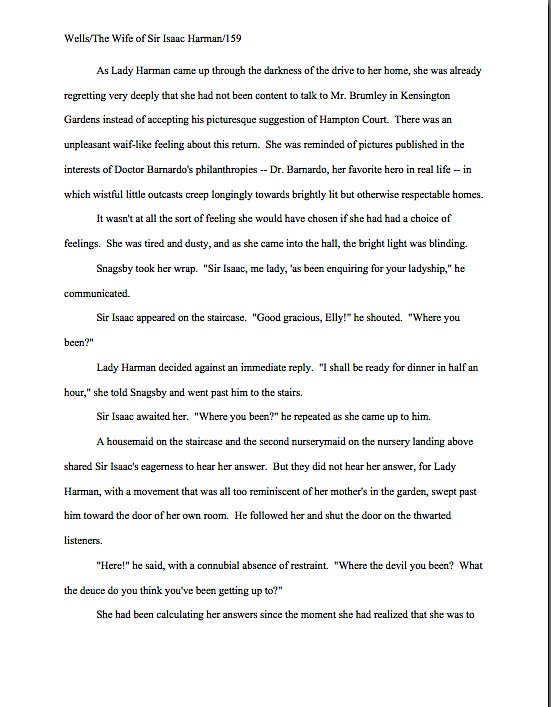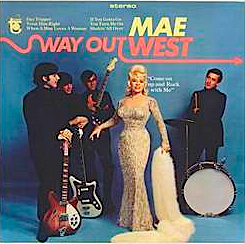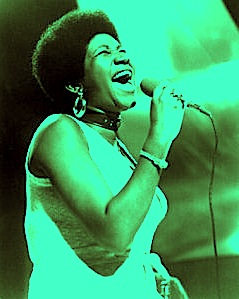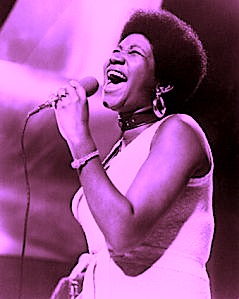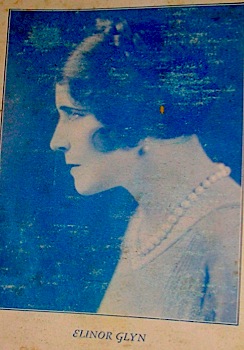Okay, so maybe a gin-and-tonic isn’t actually a necessity of conference life. However, if an alien descended from the planet Targ to make the rounds of a few dozen writers’ conferences, you could hardly blame him/her/it from reaching that conclusion.
I’m not saying that people drink a lot at writers’ conferences. I’m just saying that if Dorothy Parker, Ernest Hemingway, F. Scott Fitzgerald, and Graham Greene stumbled into the bar that’s never more than a hundred yards from any writers’ conference in North America, they probably would not be drinking alone.
Because the hired hands — agents, editors, conference presenters, visiting authors, etc. — have been known to congregate in that bar, it’s typically a pretty good place for an aspiring writer to make some literary connections. Or at least to strike up the ilk of conversation that leads to being asked, “So what do you write?”
Word to the wise: you’re going to want to be able to answer this question in a lucid manner, even very late in the evening. If you want to keep in fine pitching fettle — and you do — watch what you’re drinking, and remember to eat something. If you feel the heavy weight of peer pressure (or just don’t want a drink), club soda and lime is cosmetically identical to the aforementioned gin concoction.
I just mention. It’s also pretty good for rehydration — and believe me, after spending a day in most conference centers, your body will probably need it.
Seem like a frivolous concern, compared to the weightier issues of pitching? Darned right. Since we’ve all been so very good for so very long, I have a fun-but-practical topic for today: what materials should you bring with you to a conference — and, more importantly, to your pitch sessions with agents and editors?
Other than strong nerves, an iron stomach, and a firm conviction that your book is the best literary achievement since MADAME BOVARY, of course.
At minimum, you’re going to want to bring a trusty, comfortable pen and a notebook with a backing hard enough to write upon, so you can take good notes during seminars, agents’ fora, and the like. If you want to make friends quickly, throw a few extra pens and paper into your bag, for handing around to total strangers less prepared than you.
Even if you have no interest in making friends and influencing anyone other than an agent or editor at a conference, consider being the friendly neighborhood pen supplier. They are inexpensive, easily portable, and a small price to pay for making the acquaintance of some kind souls who will buy your books someday.
Oh, you weren’t planning on jotting down all of your new writer friends’ contact information, so you could let them know when your first book is about to come out? Why ever not? Who is going to understand better what a triumph that is — or be more likely to understand that the best way to support a writer is to buy her books?
You should also tote along all of the paperwork the conference organizers sent you, including a copy of your conference registration, information about your scheduled agent and/or editor appointments, and tickets to any dinners, luncheons, etc. for which you may have paid extra. (As, alas, one almost invariably does now at literary conferences. I can remember when rubber chicken banquets were thrown in gratis, and folks, I’m not particularly long in the tooth.)
I’m sensing some shifting in chairs out there, amn’t I? “But Anne,” those of you new to writing great big checks to conference organizers protest, “why would I need to burden myself with all of that paperwork? I already signed up for those events, as well as my pitch appointments. Won’t the conference folks have all that on file?”
I hate to burst anyone’s bubble here, but not necessarily. Remember, most writers’ conferences are organized by hard-working, dedicated, and sometimes overwhelmed teams of volunteers, not crack teams of hyper-efficient event organizers assisted by an army of support staff with Krazy Glue on their fingertips. Details have been known to fall through the cracks occasionally.
So it’s not very prudent to assume that your paperwork has not been crack fodder — or even that the selfless volunteers working the registration tables will have access to their computers to double-check what you paid to attend or which agent you asked to see. Few literary conferences are held in the offices or homes of the organizers, after all, and while being able to get into the dinner where you paid $60 to hear the keynote speaker may be vitally important to you, the volunteers on site will probably neither have the time nor the inclination to run home to double-check a misprinted list of attendees.
If you registered electronically, make sure to bring a hard copy of the confirmation. And if everything goes perfectly when you check in, please remember to thank the volunteer who helped you.
As my grandmother used to say: manners cost nothing. And as I said only moments ago, who do you think is going to buy your book? You may well want to be a speaker at this conference someday; be charming.
While you’re printing things out, go ahead and produce a hard-copy confirmation of your hotel reservation as well, if you’re not attending a conference that permits you to sleep in your own bed at night. Again, I hate to be the one to break it to you, but it is not at all unheard-of for a hotel hosting a conference to over-book.
Starting to sound like you’ll be carrying a lot of stuff? You will — so it’s a good idea to bring a shoulder bag sturdy enough to hold all of the handouts you will accumulate and books you will buy at the conference. This is not an occasion for a flimsy purse. Think grad student backpack, not clutch bag.
Don’t underestimate how many books you may acquire. It’s rare that a literary conference doesn’t have a room — or at least a table — devoted to convincing you to buy the collected works of conference speakers, local writers, and the fine folks who organized the conference. Don’t expect to receive discounts on books sold at a conference, though: because the conference typically gets a cut of sales, offering a members’ discount seldom seems to occur to organizers.
On the bright side, it’s usually child’s play to get ‘em signed. Even if the author is not hovering hopefully behind a pile of his literary output, if he’s at the conference at all, he’s going to be more than happy to autograph it. This is usually the case, incidentally, even if the author in question is a household name. So if you are looking for an excuse to walk up to a world-famous author and burble how much you love her writing, look no farther than this bookstore. It’s rare to find an author so jaded that she will not be willing to take a few minutes to sign the book a fan was kind enough to purchase.
Don’t be shy about walking up to ‘em in hallways and after speeches to ask; this is basic care and feeding of one’s readership. And if you’re polite about it — introducing yourself by saying how much you loved the author’s latest work and/or speech last night, perhaps, or via the Magic First Hundred Words — who knows? You might just end up with a marvelous literary friend.
Which is one of the reasons you signed up to go to a conference in the first place, right?
Again, though, use discretion. No one likes to be accosted with a pen and a hardback in the bathroom, or while deep in conversation with a friend one has not seen for seven years. The words, “Excuse me,” are your friends here.
Be aware, too, that when major bookstore chains organize these rooms (and at large conferences, it’s often a chain like Barnes & Noble), they often take an additional payment off the top, so a self-published author may well make less per book in such a venue. And if an author with a traditional publisher has shown up with her own copies, purloined from the sometimes generous stash of promotional copies publishers often provide authors because the expected copies did not show up on time for the conference (yes, it happens), the sales may not count toward official sales totals.
This is not to say that you should hesitate to purchase a book from the writer with whom you’ve been chatting in the book room for the last half an hour. You should, if the book sounds interesting. However, you might want to ask the author if s/he would prefer for you to buy it elsewhere. An author with a strong preference will be only too glad to steer you in the right direction.
Don’t be surprised if the question results in a book’s being shoved under your nose the next moment, though. The author may well elect to carry around half a dozen copies in his shoulder bag, just in case an eager reader turns up when the bookstore is closed. You may also be treated to a long litany of complaints about how much lower the royalties are when books are sold someplace like Costco (much of that steep discount typically comes out of the author’s end), or how much more work book promotion is for the author now than ten years ago, but that’s precisely the kind of behind-the-scenes insight you came to the conference to glean, right?
Speaking of requests folks in the industry are thrilled to get, you can hardly ask an agent or editor a more flattering question than, “Are there any books for sale here that you worked upon? I’d like to read a couple, to get a sense of your taste/style/why on earth anyone would want to spend years on end editing books about flamingos.”
Hard for even the surliest curmudgeon scowling at early morning light not to be pleased by that question.
By the way, at a conference that offers an agents’ or editors’ panel (and most do), do not even consider missing it. Attendees are expected to listen to what the agents and editors are seeking at the moment and take note where it does not match what was said in the conference guide blurb or on the agents’ websites.
Oh, did I forget to tell you to sit down before I mentioned that?
Tastes change. So does the market. But blurbs tend to get reused from year to year. Even the standard agency guides, resources that actually are updated yearly, don’t always represent what any given member agent wants right this minute.
No comment — except to say that you will be a much, much happier camper if you keep an ear cocked during the agents’ and editors’ forum to double-check that the agent to whom you were planning to pitch a vampire romance isn’t going around saying, “I swear, if I see ONE more vampire romance, I shan’t be responsible for my actions.”
Because attendees are expected to memorize such preferences — and, if necessary, to switch pitching appointments accordingly — it’s a good idea to jot ‘em all down. Yes, even if an agent is declaring her undying love for semi-explicit love scenes in science fiction, and you happen to write futuristic Westerns. I guarantee you that at least one of those writers who showed up without pens or paper will be asking within the next few hours, “Wait — what did that SF agent say she was looking for in a manuscript?”
Help him out, if only for the karma. And who do you think is going to buy…oh, you know the tune by now.
In addition to noting all such preferences in my trusty notebook, I always like to carry a few sheets of blank printer paper in my bag, so I can draw a diagram of the agents’ forum, and another of the editors’. That way, I can remember who was who by who was sitting where. I also note a few physical characteristics for each, along with their expressed preferences in books.
Why should I care what they look like and where they were sitting? Well, these fora are typically scheduled at the very beginning of the first full day of the conference — a very, very long day. By the time people are wandering into their appointments at the end of the second day, dehydrated from convention hall air and overwhelmed with masses of professional information, they’re often too tired to recall which editor had struck them the day before as someone with whom to try to finagle a last-minute appointment.
Or to be sure that the redhead to whom they were just introduced in the bar was the agent with the romantic tastes in science fiction — or the one who said she was interested primarily in historical fiction about nuns. You wouldn’t want to mix them up after your third gin-and-tonic, would you?
Being able to whip out those diagrams for a surreptitious last-minute check can be very helpful. It’s likely to be even more helpful a month or two after the conference, to assist you in remembering which of the dozen agents who spoke struck you as worthwhile to query instead of pitching, and which left you with the impression that they eat books, if not aspiring writers, for breakfast, and consume illustrators for lunch with an amusing côte de Rhone.
On my diagrams, the author-consumers tend to be depicted with horns, pitchfork, and tail. But that’s just my little memory-jogging device.
I always, always, ALWAYS advise writers to bring a big bottle of water to a conference — even to ones where the organizers tend to be very good about keeping water available. A screw-top bottle in your bag can save both spillage and inconvenience to your neighbors.
How so? Well, when you’re wedged into the middle of a row of eager note-takers, it’s not always the easiest thing in the world to make your way to the table with the pitcher on it, nor to step over people’s legs with a full glass in your hand.
If I seem to be harping on the dehydration theme, there’s a good reason: every indoor conference I have ever attended has dried out my contact lenses unmercifully. Personally, I prefer to meet people when my lenses are not opaque with grime.
I’m wacky that way. I also prefer for my voice to be audible when I speak, rather than rasping.
If your eyes dry out easily, consider wearing your glasses instead. Men may not make passes at girls who wear ‘em, to paraphrase the late great Ms. Parker, but looking bookish is seldom a drawback at a writers’ conference.
Even if you have perfect vision, there’s a good reason to keep on sippin’. If you are even vaguely prone to nerves — and who isn’t, while preparing to pitch? — being dehydrated can add substantially to your sense of being slightly off-kilter. You want to be at your best. Lip balm can be helpful in this respect, too.
Conferences and hotels, like airports, see a lot of traffic, so the week leading up to the conference is most emphatically the time to skip the vitamins. I go one step further: at the conference, I dump packets of Emergen-C into my water bottle, to keep my immune system strong. I’ve also been known to hand out chewable Vitamin C tablets like candy and bars of chocolate like medicine to those waiting in hallways for their pitch appointments.
If this seems like frou-frou advice, buttonhole me at a conference sometime, and I’ll regale you with stories about nervous pitchers who have passed out in front of agents. To stave off feeling woozy during a pitch meeting, here are some tips:
* Take nice, deep breaths. Not just every so often, but on a regular basis. You might even consider taking it up habitually.
* Don’t lock your knees when you’re standing. People who do tend to fall over.
* If you need to sit down, say so right away, no matter who happens to be standing in front of you. Trust me, that editor from Random House doesn’t want to have to pick you up off the floor, no matter how much she liked your pitch..
* Don’t drink too much coffee, tea, or alcohol prior to your pitch meeting. (Even though everyone else will be doing so with enthusiasm.) You will want your perceptions sharp, not wired or dulled.
* Go outside the conference center every so often. A glimpse of blue sky can provide a lot of perspective.
* Make some friends. You’ll have more fun, and you can meet in the hallway later to swap notes about seminars happening simultaneously.
* If you’re feeling nervous or scared, talk about it with some nice person you met in the hallway, rather than keeping it bottled inside.
* Be willing to act as someone else’s sounding board. Do it for the karma. And who do you think is going to buy your books in years to come?
This is a time to be very good to yourself. A conference should not be an endurance test. If I had my way, the hallways at any pitching conference would be lined with massage chairs, to reduce people’s stress levels.
While I’m sounding like your mother, I shall add: don’t try to pitch on an empty stomach.
I’m very serious about this — no matter how nervous you are, try to eat something an hour or so before your pitch appointment. When I ran the Pitch Practicing Palace (a safe space for those new to the game to run their pitches by agented writers before trying them out on an agent or editor, to weed out potential problems), I used to keep a bowl of candy on hand, simply because so few pitchers had remembered to feed themselves.
Trust me, even if your stomach is flipping around like the Flying Wallendas on speed, you’ll feel better if you eat something. If you are anticipating doing a lot of hallway pitching, or dislike the type of rubber chicken and reheated pasta that tends to turn up on conference buffets, you might want to conceal a few munchies in your bag, to keep yourself fueled up. I like to toss a couple of oranges into my conference kit: in a room with stagnant air, the aroma produced in the peeling process can lift everyone’s spirits. Even people who hate oranges may ask for a section.
The generous person with the tin of Altoids also tends to be rather popular in the waiting area near the pitching appointments. Even if you don’t aspire to being the waiting room’s Easter Bunny, it’s not a bad idea to bring along some mints or ginger candy for your own use, just in case you start to feel queasy.
Since you will most likely be sitting on comfortless chairs for many, many hours over the course of the conference, you might want to bring a small pillow, either to sit upon or for back support. Those metal chairs can be brutal. I once attended a conference where instead of tote bags, the organizers distributed portable seat cushions emblazoned with the writers’ organization’s logo to attendees.
You should have heard the public rejoicing.
In the spirit of serious frivolity, I’m going to make another suggestion: carry something silly in your bag, a good-luck charm or something that will make you smile when your hand brushes against it. When you’re stressed, it can work wonders to have a concealed secret.
Honest, this works. I used to advise my university students to wear their strangest underwear on final exam day, for that reason — it allowed them to know something that no one else in the room knew. (It also resulted in several years’ worth of students walking up to me when they turned in their bluebooks and telling me precisely what they were wearing under those athletic department sweats — and, on one memorable occasion, showing me. So I say from experience: resist the urge to share; it’s disconcerting to onlookers.)
If you suspect you would be uncomfortable wearing your 20-year-old Underroos or leather garter belt (sorry; you’re going to have to find your own link to that; I suspect it will not be difficult) under your conference attire, a teddy bear in your bag can serve much the same purpose. Anything will do, as long as it is special to you.
So far, my advice has been concerned with your comfort and welfare. From here on out, the rest of today’s tips will be all about networking.
That’s right, I said networking. Conferences are about CONFERRING, people.
Because you will, I hope, be meeting some God-awfully interesting at your next writers’ conference, you will want to bring some easily transferable pieces of paper with your contact information printed on it. A business card, for instance, or comparably sized sheets from your home printer.
I mention this now, so you may prepare in advance. Having to scrabble around in your tote bag for a stray scrap of paper upon which to inscribe your vitals every time you meet someone nice gets old fast.
Besides, if you file a Schedule C to claim your writing as a business, the cost of having the cards made is usually tax-deductible –- and in the US, you don’t necessarily have to make money as a writer in every year you file a Schedule C for it. I’m not a tax attorney, though, so talk to a tax advisor experienced in working with writers — not just artists. Heck, all of those books you buy might just be deductible as market research.
Seriously, it is worth your while to have some inexpensive business cards made, to print some up at home, or to ask Santa to bring you some professional-looking jobs for Christmas. It’s always a good idea to be able to hand your contact info to an agent or editor who expresses interest in your work. They don’t often ask for it, but if they do — in a situation, say, where an editor from a major press who is not allowed to pick up an unagented book really wants to hook you up with an agent — it’s best to be prepared. Even if the agent of your dreams just ends up using your card as a bookmark, she will see your name again.
Second, unless you make a point of sitting by yourself in a corner for the entire conference, you are probably going to meet other writers that you like. Maybe even some with whom you would like to exchange chapters, start a writers’ group, or just keep in contact to remind yourself that we’re all in this together. Or to add to that Notify When the Book Comes Out list I sincerely hope you have been maintaining for years. (How do you think all of those people who have said, “Gee, I’d like to read some of your work sometime,” will find out about your book if you do not tell them?)
It works the other way, too, of course. The easier you make it for those nice writers to contact you, the more likely they are to remain in contact. It’s just that simple.
I’m sensing some ambient rustling again. “But Anne,” some rustlers exclaim, “I’m going to the conference to meet folks in the industry who can help me get my work published. Why would I waste my time chatting up other aspiring writers, who are ostensibly there for precisely the same reason?”
A very good question, oh rustlers, and one that deserves a very direct answer: because it’s far from a waste of time.
Besides, avoiding the unpublished is just a wee bit snobbish, isn’t it? I would urge you to avoid the extremely common mistake of walking into any writers’ gathering thinking that the only people it is important for you to meet are the bigwigs: the agents, the editors, the keynote speakers. It requires less energy to keep to yourself, true, but it is a tad elitist, not to say short-sighted: in the long run, casting a wider acquaintance net will pay off better for you.
Why? For one very, very simple reason — and it’s not that these are the loyal friends who will not only buy your books, but sneak into bookstores across this fine land of ours and turn them cover-out, so browsers are more likely to notice them. The more writer friends you have, the easier it is to learn from experience.
Why make your own mistakes, when you can learn from your friends’, and they from yours? What better source for finding out which agents are really nice to writers, and which are not? And who do you think is going to come to your book signings five years from now, if not that sweet writer with whom you chatted about romantica at lunch?
Obviously, if you can swing a one-on-one with the keynote speaker, go for it. (An opening line that I’ve seldom seen fail: “Excuse me, but I wanted to thank you for that speech. You said exactly what I needed to hear right now.” Few public speakers, no matter how talented, are so secure that they won’t want to know what in particular struck you so.) But try not to let star-gazing distract you from interacting with the less well-known authors teaching the classes — who are there to help you, after all — or the writer sitting next to you in class. I have met some of the best writers I know by the simple dint of turning to the person rummaging through the packaged teas on the coffee table and saying, “So what do you write?”
Don’t tell me that you’re too shy to handle this situation — I happen to know that you have a secret weapon. Remember those magic first hundred words? This is the time to use ‘em.
Someday, some of your fellow conference attendees are going to be bigwigs themselves. Realistically, can you rule out the possibility that the person sitting next to you in the session on writer’s block isn’t the next Stephen King? Won’t you want to be able to say that you knew them when?
And even if this were not true (but it is), writing is an isolating business. For every hour that even the most commercially successful writer spends interacting with others in the business, she spends hundreds alone, typing away. The more friends you can make who will understand your emotional ups and downs as you work through scenes in a novel, or query agents, or gnaw your fingernails down to the knuckle, waiting for an editor to decide whether to buy your book, the better.
Even the world’s most charmed writer, blessed with immense talent AND vast quantities of pure, dumb luck, has days of wondering whether all the effort is worth it. Not all of us are lucky enough to live and work with people who appreciate the necessity of revising a sentence for the sixth time. Writers’ conferences are the ideal places to find friends to support you, the ones you call when your nearest and dearest think you are insane for sinking your heart and soul into a book that may not see print for a decade.
So stuff some business cards into your conference bag. While you’re at it, toss in a folder containing several copies of your synopsis and the first five pages of your book, as a writing sample.
Why five pages, specifically? Well, not all agents will want to see them, but many, when they are seriously taken with a pitch, will ask to see a few pages on the spot, to see if the writing is good enough to justify the serious time commitment of reading the whole book. It’s the same basic principle governing agency submission guidelines that request a few pages to be tucked into the query packet.
Having these pages ready to whip out at a moment’s notice will make you look substantially more professional than if you blush and murmur something about printing it out, or simply hand the agent your entire manuscript. Especially if you had the foresight to carry them in a folder, so they would not wrinkle, and to print them on 20-lb or better bright white paper.
Don’t, however, bother to bring your entire manuscript with you to the conference, unless you are a finalist in one of the major categories of the conference’s literary contest. You will never miss an opportunity by offering to mail or e-mail it instead. In fact, agents almost universally prefer it. This is often true, bizarrely, even if they insist that they want to read it on the airplane home.
Why the exception for the contest finalists? Well, I don’t think it should come as much of a surprise to anyone that agents tend to be pretty competitive people. The primary reason that an agent asks for the whole thing right away, in my experience, is if he is afraid that another agent at the conference will sign you before he’s had a chance to read it. The writers who tend to be the objects of such heart-rending scenes of jealousy are almost invariably those sporting blue ribbons.
So while I have known agents to read a chapter or two of a contest winner’s work in their hotel rooms, the chances of its happening in the normal run of a pitch day are roughly the same as finding the complete skeleton of a dinosaur in your back yard. It could happen — but it doesn’t really make sense to plan your life around a possibility that remote.
Don’t hurt your back lugging the manuscript box around; the sample will do just as well. And don’t bother to bring an electronic copy of your book — it’s actually considered rather rude to hand out CD-ROMs willy-nilly.
Why? Well, because not everyone is as polite as my lovely readers. It’s not at all uncommon for a total stranger to come charging up to an agent, editor, or someone like yours truly at a conference, shove a soft copy into our astonished hands, and disappear, calling back over her retreating shoulder, “My contact information’s on there, so you can let me know what you think of it.”
Without exception, electronic media presented in this manner ends up in the trash, unread.
Why? Well, apart from the general impoliteness involved in insisting that just because someone is in the industry, s/he has an obligation to read every stranger’s work, there’s also the very real risk that a stranger’s disk is going to be infected with a computer virus; it would be rather imprudent even to try to check out its contents.
Even if the recipient happened to have a really, really good firewall, this method also conveys a tacit expectation that the recipient is going to go to the trouble and expense of printing the book out — or risk considerable eyestrain by reading an entire book onscreen. Not very likely.
These days, if an agent or editor wants an electronic copy of your book, s/he will ask you to e-mail it. Trust me on this one.
Regardless, your 5-page sample should be in hard copy. Ideally, it should be the opening of the book, but if you feel that an excerpt from the end of the book showcases your work better, use that. Using the first five pages is widely considered more professional, though — it just exudes more confidence in your writing, as these are the first pages a screener would see in a submission.
From the writer’s perspective, the sole purpose of the writing sample is to get the agent to ask you to send the rest of the book, so although I hammer on this point about twice a month here, I’m going to say it again: as with everything else you submit to any industry pro, make sure that these pages are impeccably written, totally free of errors, and in standard format.
Seriously, this is not a moment when you want your pages to cry out, “The author’s unfamiliar with the norms of the industry!” You want the formatting to be unprovocative, showcasing rather than distracting from your writing.
If the fact that there is a standard format for manuscripts — and that it does not resemble the formatting of published books — is news to you, rush into the archives at right immediately, and take a gander at the HOW TO FORMAT A BOOK MANUSCRIPT category. Even if you’re relatively sure you’re doing it right, it isn’t a bad idea to double-check.
Stop groaning, long-time readers; we all could use a refresher from time to time. As long as I am writing this blog, no reader of mine is going to have his or her work rejected simply because no one told him or her what the rules of submission were.
Again, I’m funny that way.
Okay, that’s enough practicalities for one day. Avoid dehydration, make some friends, and, as always, keep up the good work!








 As of this moment, you have my permission to get into an elevator with an agent or editor without pitching, if you so desire. Live long and prosper.
As of this moment, you have my permission to get into an elevator with an agent or editor without pitching, if you so desire. Live long and prosper. I hereby solemnly swear that I shall not have learned the magic first hundred words and elevator speech in vain. The next time I attend a writers’ conference, I will pitch to at least three agents or editors with whom I do not have a previously-scheduled appointment.
I hereby solemnly swear that I shall not have learned the magic first hundred words and elevator speech in vain. The next time I attend a writers’ conference, I will pitch to at least three agents or editors with whom I do not have a previously-scheduled appointment. MAGIC FIRST 100 WORDS + ELEVATOR SPEECH = HALLWAY PITCH.
MAGIC FIRST 100 WORDS + ELEVATOR SPEECH = HALLWAY PITCH.
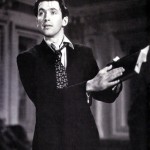

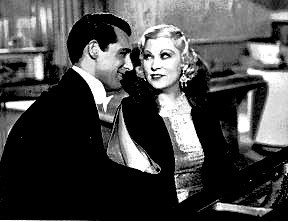






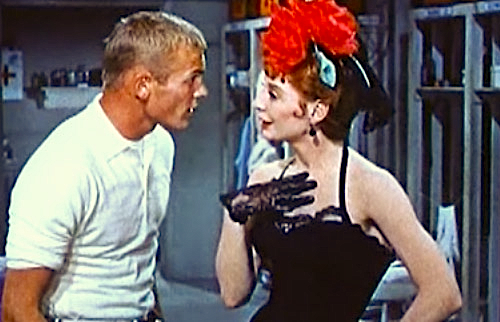
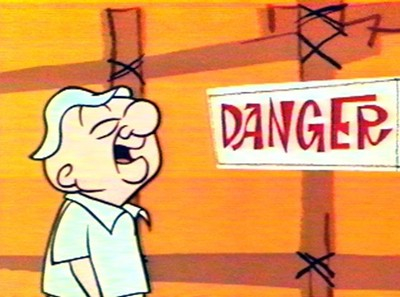
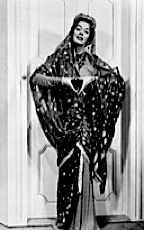






 Richard Hooker’s M*A*S*H — rejected by 21 publishing houses. {“How many Army doctors could there possibly be?” they must have scoffed. “And who else would care?”)
Richard Hooker’s M*A*S*H — rejected by 21 publishing houses. {“How many Army doctors could there possibly be?” they must have scoffed. “And who else would care?”)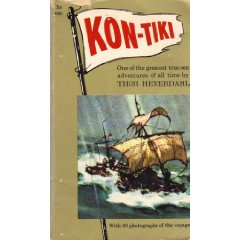 Thor Heyerdahl’s KON-TIKI — rejected by 20 publishing houses. (Yes, THAT Kon-Tiki. “This might appeal to people who sail for pleasure, but can we afford a novel for the yacht-owning niche?”)
Thor Heyerdahl’s KON-TIKI — rejected by 20 publishing houses. (Yes, THAT Kon-Tiki. “This might appeal to people who sail for pleasure, but can we afford a novel for the yacht-owning niche?”)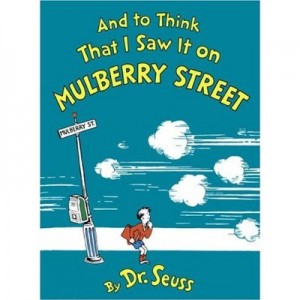 Dr. Seuss’ first book, AND TO THINK THAT I SAW IT ON MULBERRY STREET — rejected by 23 publishing houses. (“Do we really want to confuse children?”)
Dr. Seuss’ first book, AND TO THINK THAT I SAW IT ON MULBERRY STREET — rejected by 23 publishing houses. (“Do we really want to confuse children?”) Richard Bach’s JONATHAN LIVINGSTON SEAGULL — rejected by 18 publishing houses. (“The only person I have ever known who cared about seagulls was my mad great-aunt Kate, who spent her last years wandering down to the beach to offer them caviar on crackers. Next!”)
Richard Bach’s JONATHAN LIVINGSTON SEAGULL — rejected by 18 publishing houses. (“The only person I have ever known who cared about seagulls was my mad great-aunt Kate, who spent her last years wandering down to the beach to offer them caviar on crackers. Next!”)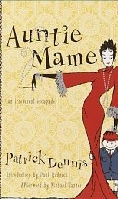 Patrick Dennis’ AUNTIE MAME — rejected by 17 publishing houses. (I have no idea what they were thinking here; perhaps that it was really the memoir it purported to be?)
Patrick Dennis’ AUNTIE MAME — rejected by 17 publishing houses. (I have no idea what they were thinking here; perhaps that it was really the memoir it purported to be?)






